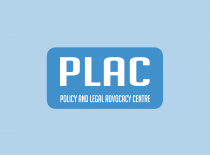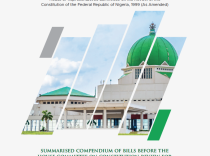The Senate Joint Committees on Finance and National Planning has commenced a 5-day Public Hearing on the 2021-2023 Medium-Term Expenditure Framework/Fiscal Strategy Paper (MTEF/FSP) to avail the various Ministries, Departments and Agencies (MDAs) the opportunity to present justifications on their economic and fiscal estimates contained in the 2021-2023 MTEF/FSP.
The proposals of the Federal Government contained in the MTEF/FSP are as follows:
- Aggregate Expenditure for 2021 – N12.66 Trillion
- Statutory Transfer – N481.41 Billion
- Capital Expenditure- N3.33 Trillion
- Non-Debt Recurrent Expenditure- N5.75 Trillion (including N350billion for recurrent component of the Special Intervention Programme)
- Debt Service – N3.12 Trillion
- Sinking Funds to retire maturing bonds issued to local contractors/creditors- N220 Billion
Other proposals include, N4.31 Trillion for personnel and pension costs; N34.76 Billion which represents 1% of the Consolidate Revenue Fund (CRF) has been earmarked for Basic Healthcare Provision Fund (BHCPF); N29.46 Billion for the North East Development Commission (NEDC); and N45.19 Billion for Service Wide Votes for GAVI/Routine Immunization.
On key parameters and macroeconomic projections, the Federal Government has proposed $40 as the Oil Price Benchmark; an Oil Production Benchmark of 1.86mbpd; an Exchange Rate of N360/$; an Inflation Rate of 11.95% and a GDP Growth Rate of 3%.
In terms of the Macroeconomic Policy Objectives, the Federal Government highlighted the following as its objectives:
- Improving and sustaining economic growth and ensuring inclusiveness;
- Supporting Employment Creation and Job Preservation; and
- Ensuring macroeconomic stability.
In view of the COVID 19 pandemic, the Federal Government has indicated in the 2021-2023 MTEF/FSP that the economy is projected to recess in 2020 with the GDP growth rate projected by the National Bureau of Statistics (NBS) to be -4.2% against its previous projection of 2.93%. In order to prevent the prolonged impact of an economic recession and cushion the effect of the COVID-19 pandemic, the recent establishment of a N500 billion Crisis Intervention Fund will be used to fund the following programmes and projects:
- N36 billion to Support State Governments;
- N54.6 billion for Jobs and Food for All: Agriculture and Food Security Programme;
- N12.43 billion for Energy for All: Mass Rural Electrification/Solar Power Strategy Programme;
- N75 billion for Supporting Small Businesses/MSME Survival Fund;
- N60 billion for Maintenance of Roads through Contract and Direct Labour in 6 Geo-political Zones;
- N9.59 billion for Job Creation Scheme for Youth and Women Post COVID-19;
- N52 billion for Public Works Programme;
- N32.46 billion for Social Intervention Programme;
- N5 billion bail-out for Support to the Aviation Sector;
- N126 billion for Upgrading healthcare infrastructural facilities and operations across Federal Medical Centres, Teaching Hospitals, etc.
Other programmes and project include, N2.98 billion for the Ministry of Interior; N6 billion for Artisanal and Small-scale Miners; N9.89 billion for Water, Sanitation and Hygiene (WASH); and N750 million for Monitoring, Evaluation and Reporting.
It would be recalled that President Muhammadu Buhari, in a letter read at the Senate plenary session of Tuesday, 21 July 2020 informed lawmakers of his submission of the 2021-2023 MTEF/FSP ahead of the 2021 Budget presentation. In the letter, the President had stated that the 2021 Budget will be prepared based on the parameters and fiscal assumptions approved by the National Assembly.
The Public Hearing, chaired by Sen. Solomon Olamilekan Adeola (APC: Lagos), Chairman of the Senate Committee on Finance is expected to end on Tuesday, 25 August 2020.





